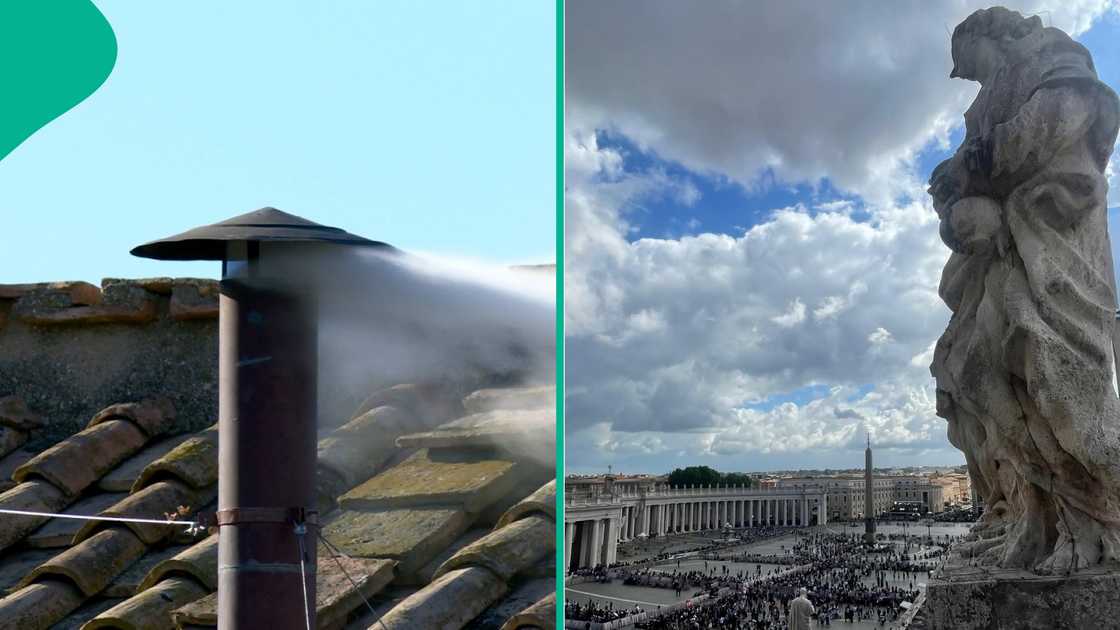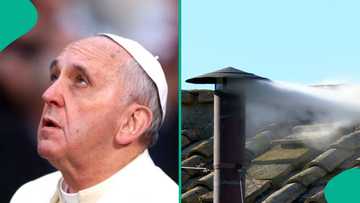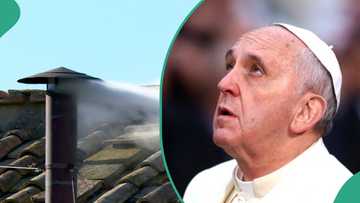Who Is the New Pope? What We Know So Far as Francis’ Successor Emerges
- White smoke emerged from the Sistine Chapel on Thursday, May 8, confirming that Catholic cardinals have elected a new pope to succeed Pope Francis
- The decision came after the fourth round of voting on the second day of the secretive papal conclave
- While the identity of the new pontiff remains undisclosed, he is expected to be announced shortly from the balcony of St. Peter’s Basilica
Vatican City - White smoke billowed from the chimney of the Sistine Chapel on Thursday evening, May 8, signalling that Catholic cardinals have elected a new pope to lead the 1.4 billion-member Roman Catholic Church.
The smoke appeared after the fourth ballot on the second day of the closely guarded papal conclave.

Source: Twitter
Who is the new pope?
While the white smoke (fumata bianca) confirms that a successor to Pope Francis has been chosen, the identity of the new pontiff had not yet been announced as of early evening, according to the BBC. Based on past conclaves, the Church’s 267th pope is expected to appear on the central balcony of St. Peter’s Basilica within the hour.
The traditional announcement, “Habemus Papam” (“We have a pope”), will be delivered by the protodeacon of the College of Cardinals, who will then introduce the new pope by his birth name and the papal name he has chosen — both in Latin.
How the Conclave works
The conclave, held in strict secrecy, began Wednesday, May 7, with 133 cardinal-electors gathered under lock and key within Vatican City. All forms of communication were suspended, and signal-jamming devices were installed to prevent leaks or outside interference.
Cardinals can vote up to four times a day. After each pair of votes, ballots are burned in a special furnace. The smoke — black for an inconclusive vote, white for a successful one, signals the result to the outside world.
To be elected, a candidate must receive a two-thirds majority of the votes. Of the eligible electors, 110 were appointed by Pope Francis himself, giving him significant influence over the outcome.
The meaning behind the smoke
The Vatican uses a combination of chemicals to produce the unmistakable white smoke.
While wet straw was once used, the formula now includes potassium chlorate, lactose, and rosin — a tree resin also used to add friction to violin bows — to ensure clarity and avoid confusion with grey smoke.
Conclave length shortens
Conclaves have grown shorter over time. Pope Francis was elected after five ballots in 2013, taking just two days. His predecessor, Benedict XVI, was chosen in under 48 hours in 2005.
The current conclave appears to have followed a similar timeline. The longest in Church history occurred in 1268 and lasted nearly three years before a pope was chosen.
Source: Legit.ng




